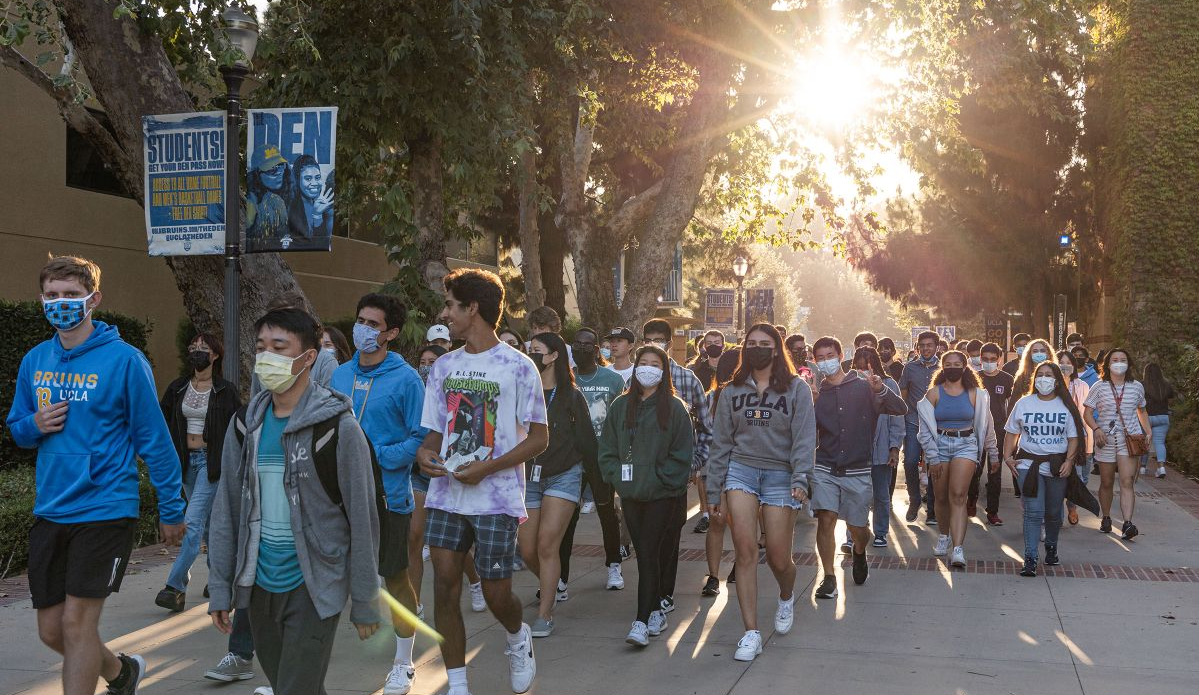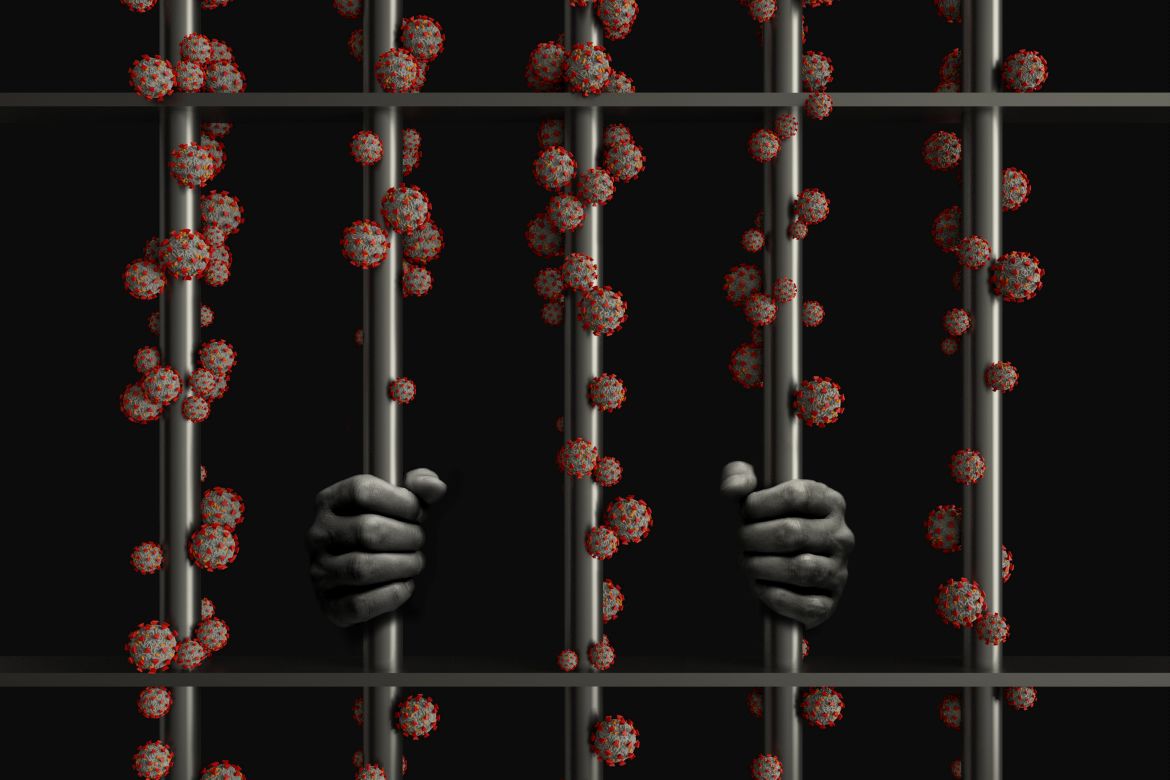When times are tough, Bruins exemplify the best in humanity — striving to develop innovative ways to help our most marginalized communities, improving healthcare and education, taking time to support each other, and serving on the pandemic frontlines. As we mark the second year since the global
pandemic shutdown, we’re taking a closer look at how UCLA is meeting the challenges of COVID-19 on campus, across the state and around the globe.
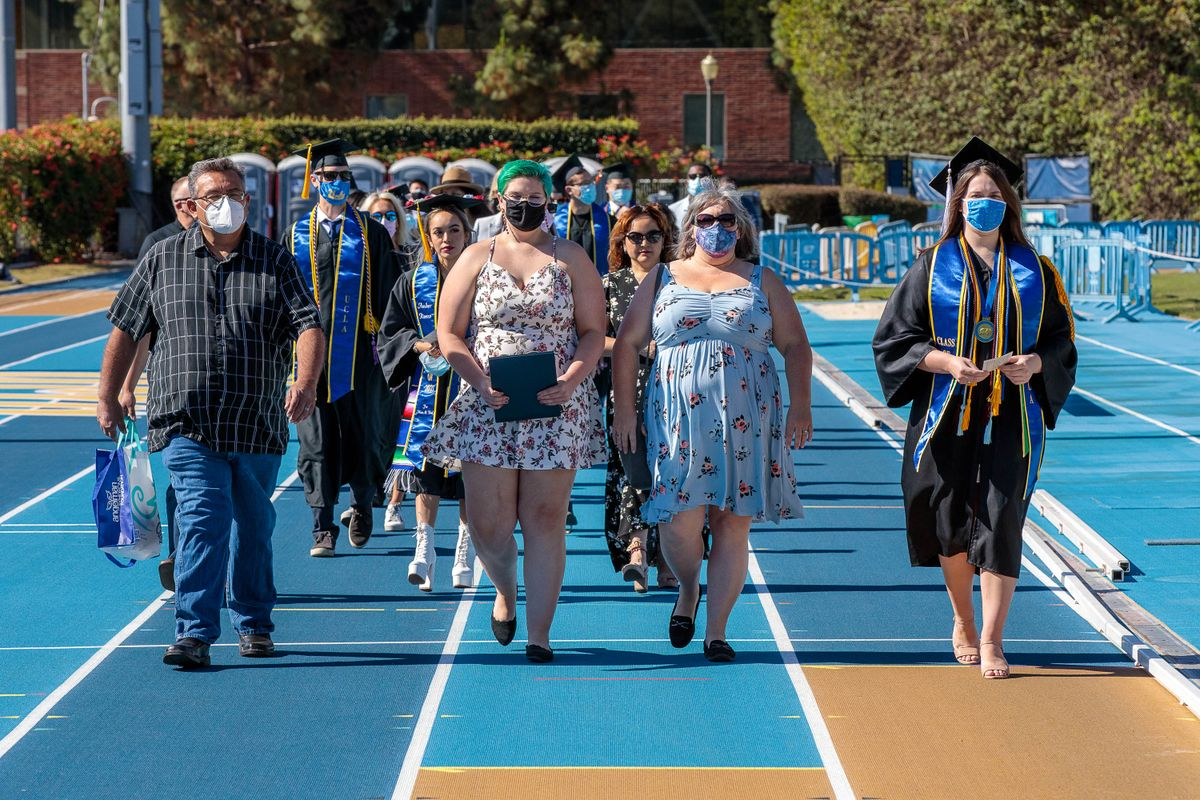
Class of 2021 procession at Drake Stadium
-
One year ago, and one year into the pandemic, Los Angeles County began vaccinating people 65 and over at large-scale sites. At UCLA, spring quarter began with remote-only instruction, as faculty, staff and students became eligible for COVID-19 vaccination and campus slowly reopened. By April 2021, the University began to welcome Bruins back to campus, as university leadership hosted town halls to explain guidelines and take questions.
-
The graduating Class of 2021 celebrated with hybrid ceremonies in June, both virtual and a procession across the stage at Drake Stadium. Later in the fall, the Class of 2020 was able to hold their in-person commencement ceremonies at Royce Hall.
-
September 2021 saw a return to in-person classes for fall quarter with science-based safety protocols in place to protect Bruins from the surging SARS-CoV-2 Delta variant: mandatory face coverings, weekly COVID-19 testing, proof of vaccination and daily symptom monitoring.
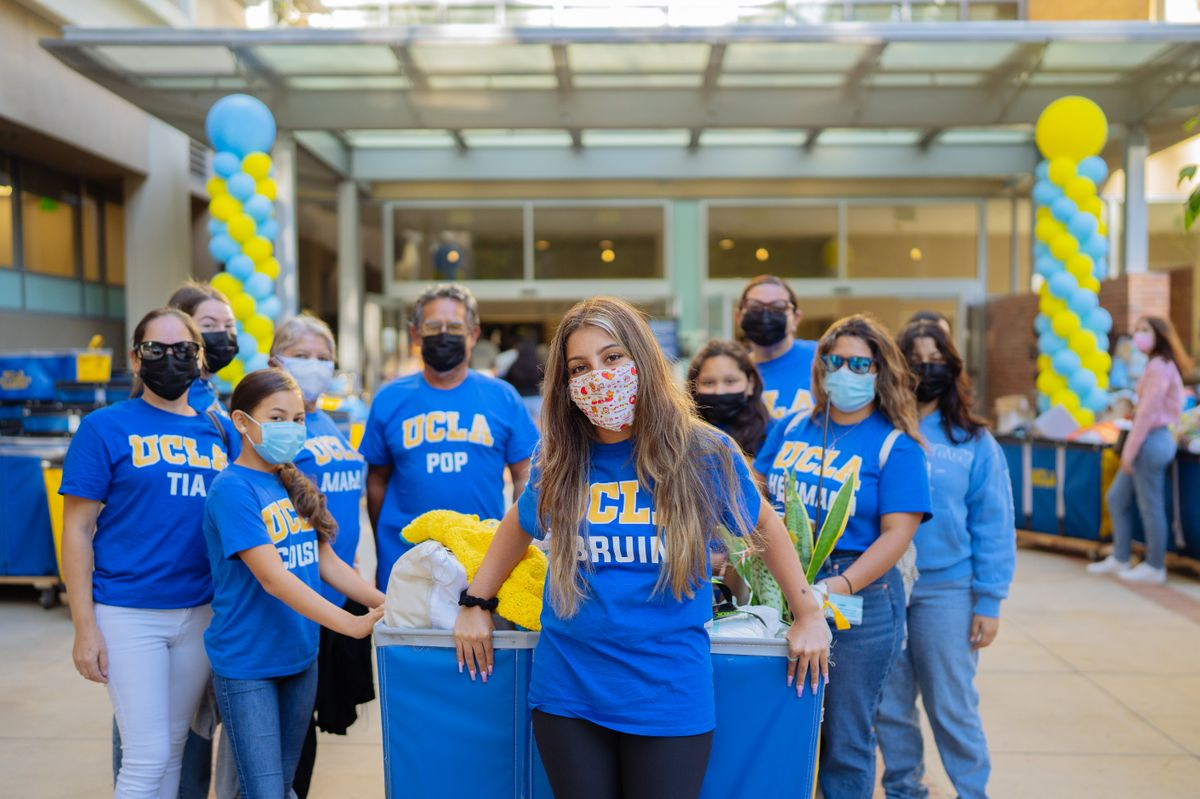
Move-in Day
-
Thanks to UCLA, everyone with a BruinCard has access to fast, free and easy COVID tests available at vending machines across campus. UCLA SwabSeq Lab uses next-generation genomic sequencing to process thousands of tests each week. A $13.3 million contract from the National Institutes of Health will allow UCLA to expand their testing capacity to serve local schools and universities.
-
Strengthened safety protocols and Bruin determination have helped to manage the pandemic rollercoaster, but December and January saw the rise of Omicron, leading the winter quarter to begin with a four-week return to remote learning.
-
This second anniversary of the shutdown in March is markedly different from the first — the university is once again buzzing with the energy from students, staff and campus life, as COVID restrictions begin to ease across the city, state and country.
-
The pandemic brought forth an army of Bruin helpers. Many students have taken the time to give back, like Barbra Lyons exp. ’23, who volunteered at a drive-thru food bank and Akshay Anand ’21, who created Concerts at the Kitchen Table, a music fundraiser for COVID-19 relief. Alumni entrepreneurs like Chris Aranaga ʼ82, MBA ʼ85, shifted his business operations to provide affordable, high-quality face masks to essential workers.
-
In the spirit of Bruins helping Bruins, UCLA Alumni began its popular Bruin-Owned Business series, spotlighting establishments hit hard by the pandemic, like restaurants, bars, event services, fitness and retail centers.
-
In an effort to inform and address issues affecting the Bruin community, UCLA Alumni president D'Artagnan Scorza ’07, Ph.D. ’13, began hosting a series of alumni town halls with prominent university officials and guests who share information about the impact of COVID-19 and how UCLA is responding.
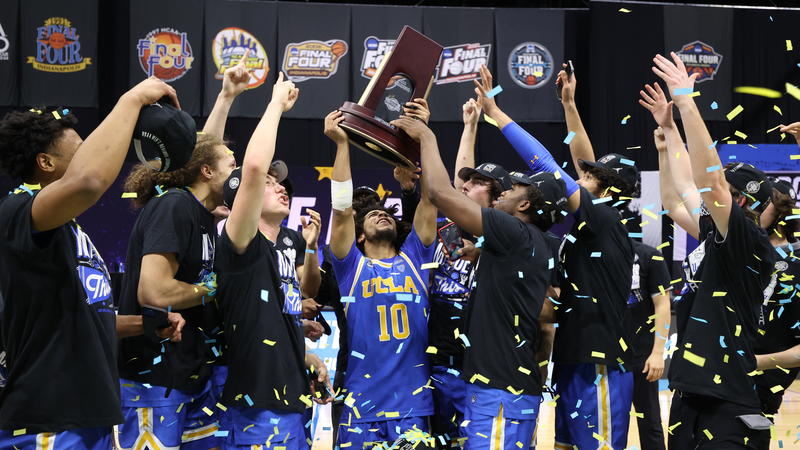
Men's Basketball makes it to the Final Four
-
Throughout the year, intent on keeping players and fans healthy, UCLA Athletics canceled some games due to COVID health and safety protocols, including the Fiesta Bowl hours before kickoff. They also limited the number of spectators at others.
-
The UCLA Men’s Basketball team had an epic year as well, making it to the Final Four, but ending the season in a heartbreaking overtime loss. Fans across the nation sent messages to encourage the team. They began the following season ranked No. 2 in the country.
-
Students in Paul Barber’s class “Health Disparities and the Environment'' surveyed other students about their virtual learning experience. They found that STEM students and first-generation, underrepresented minority students faced more obstacles in the transition to remote, and shared these findings with the administration in hopes of shaping equity-minded policies.
-
Local communities who speak languages other than English are vulnerable to public health misinformation. To combat this, the Asian American Studies Center partnered with UCLA's Fielding School of Public Health and the Institute of American Cultures to create TranslateCovid.org, a website with COVID-19 resources in multiple languages.
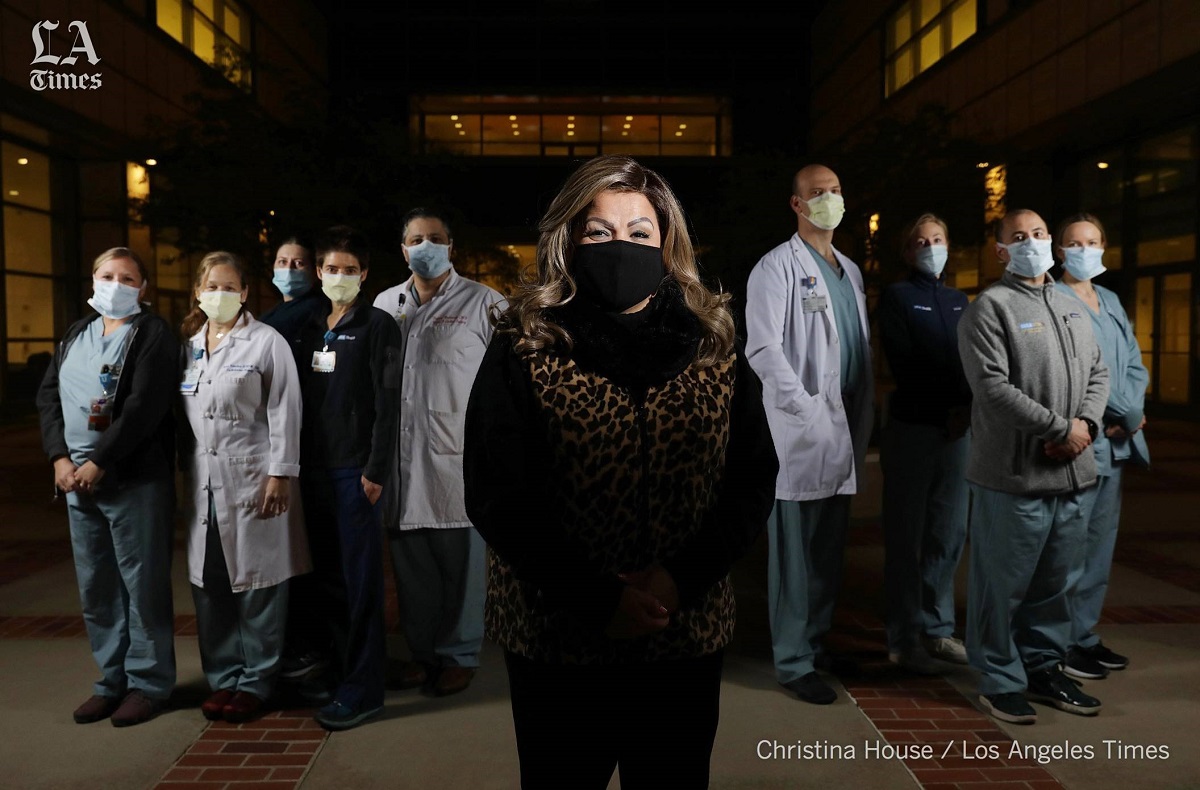
Blanca Lopez thanks UCLA healthcare workers
-
Cutting-edge developments are taking place at the David Geffen School of Medicine and the Ronald Reagan Hospital. From a study which found a potential COVID-19 treatment in the anti-cancer drug berzosertib, now in clinical trials, to a yearlong CDC-funded study to determine vaccine effectiveness among healthcare personnel, to clinical trials that compare booster responses in the immunocompromised, we celebrate their heroic efforts at the forefront of research and patient care.
-
COVID-19 survivor Blanca Lopez returned to UCLA to thank the medical team that saved her life. Lopez was treated with state-of-the-art ECMO technology that allows critically ill patients’ overworked organs to rest and recover. UCLA Health has the only ECMO ambulance in the region and the largest program on the West Coast.
-
Nurses on the pandemic frontlines often find it takes a toll on their mental health. Researchers at the School of Nursing are assessing the effect of a brief mindfulness exercise on nurses’ resilience during this challenging time, with the potential to share the technique more widely.
-
Studies show that as many as 50% of Californians with mental illness are not receiving the psychiatric care they need. UCLA became one of three UCs to graduate 300 psychiatric nurse practitioners who will help meet California’s urgent need for these services.
-
At the School of Dentistry they are developing more efficient, noninvasive technologies for testing to increase the number of available tests. Professor of oral biology Dr. David Wong’s saliva-based test uses his electric field-induced release and measurement technology to detect both active infection and antibodies.
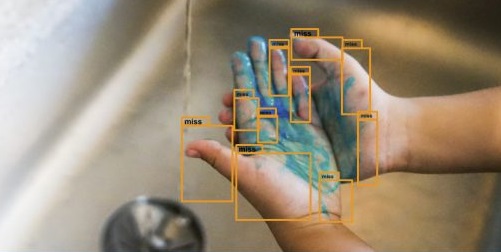
Color Clean Soap
-
Computer scientists and engineers at the Henry Samueli School of Engineering and Applied Science have been collaborating with colleagues in medicine to develop urgently needed personal protective equipment, cutting-edge testing methods and vaccine boosters.
-
Students and alumni are using their engineering skills to improve health through numerous creative efforts, including Color Clean Soap, launched by Mike Raymond ’07 to help kids learn the important pandemic skill of proper handwashing.
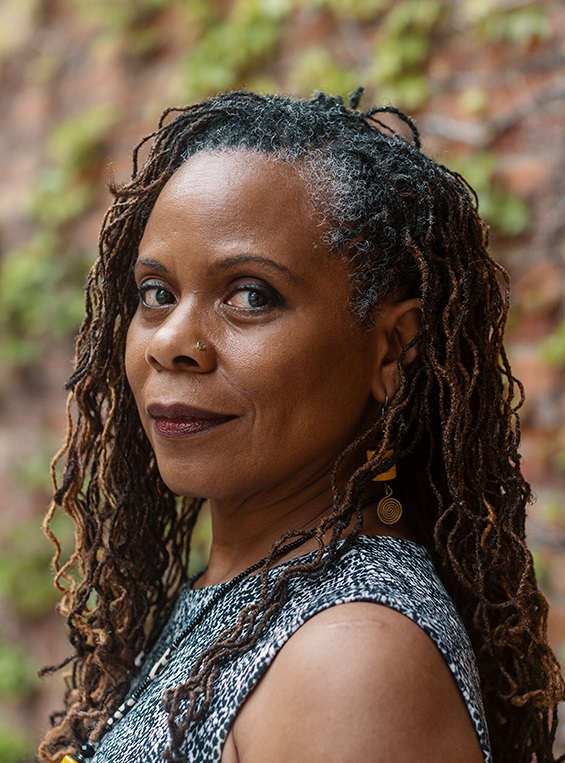
Professor Chandra Ford
-
At the Jonathan and Karin Fielding School of Public Health, researchers have partnered with doctors at the David Geffen School of Medicine to study ways to increase COVID-19 testing for Los Angeles’ schools with students most at risk from the virus.
-
Several studies looked at those who have been disproportionately devastated by the pandemic. The UCLA Center for Health Policy Research found that, among Californians, Native Hawaiians and Pacific Islanders are three times more likely to contract COVID-19; and a study by Dr. Richard Leuchter found that the pandemic exacerbated existing racial health care disparities among African Americans’ access to preventative care.
-
While sobering, these results will be a starting point for research-based solutions. Such is the case for Professor Chandra Ford, founder of the UCLA Center for the Study of Racism, Social Justice & Health, who received a $1.7 million grant from the CDC Foundation for Project REFOCUS, to respond in real time to COVID-19–related discrimination in marginalized populations.
-
The pivot to remote learning has changed teaching forever. At its annual symposium for UC faculty and staff, faculty at the UCLA School of Education & Information Studies discussed the benefits of remote teaching to strengthen classroom connections and best practices for engaging students.
-
The Meyer and Renee Luskin School of Public Affairs’ sixth annual L.A. County Quality of Life Index found that Angelinos were extremely resilient, yet the virus has had serious repercussions on people with lower incomes, health issues and pandemic-related restrictions. According to Zev Yaroslabsky ʼ58, who oversaw the index, “Many of our residents — especially younger ones — are anxious, angry and steadily losing hope about their future in Los Angeles.”
-
At the School of Law, students organized to help to secure unemployment benefits for hospitality and restaurant workers in California who lost their jobs as a result of the shutdown. Researchers compiled expansive online resources to track issues at the intersection of the coronavirus pandemic and groups, such as persons with physical and mental disabilities, LGBTI people and those facing food insecurity.
-
As prisons locked down for the pandemic, the UCLA Prison Law & Policy Program began soliciting information on the dangers faced by the more than two million incarcerated Americans and built a comprehensive database of real-time policy implications of the coronavirus crisis in jails and prisons nationwide.
-
As more and more people became eligible for the vaccine last March, economists at the UCLA Anderson Forecast predicted that COVID-19 vaccinations would boost the economy and bring record growth.
-
Marketing professor Hal Hershfield partnered with psychology professor Keith Holyoak to study how to craft the vaccine message for the undecided. They found the pandemic’s politicization drove vaccine hesitancy, and improving that will take diverse voices across platforms.
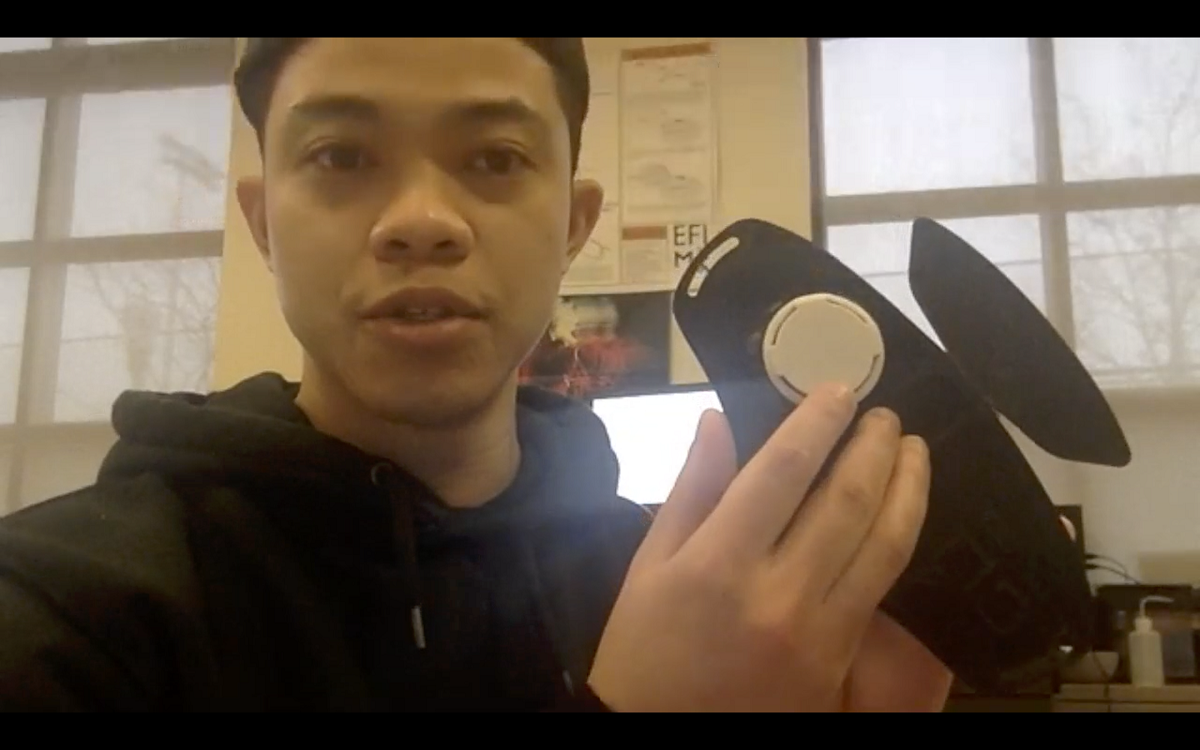
Alex McDonald and his 3D-printable origami face mask
-
The arts were transformed by the pandemic, and adapting to a remote environment meant reimagining what is possible at UCLA and around the world. Artists moved from the studios to the streets, schools hosted workshops to maximize the powers of technology and faculty connected and collaborated virtually with artists overseas.
-
The School of the Arts and Architecture’s Art|Sci Center published a newsletter to share “thoughts, actions, and research-based responses'' to the pandemic. One such project was a reusable 3D printable origami face mask developed by student Alex McDonald, who worked remotely with his media arts and design professor to invent an innovative solution to an ongoing problem. The Center also launched The Medicine + Media Art Initiative to showcase projects that reimagine the exchange between art and medicine.
-
Students and faculty at the School of Theater, Film and Television create stage and screen productions for the public’s enjoyment. Administrators at the School pivoted to helping students affected by the pandemic. TFT Executive Board member Liz Whitney ʼ80 came up with the idea of a fundraiser showcasing the students’ talents over Zoom. They have raised and donated more than $200,000 from generous donors.
From the arts to law, from public health to psychology, the UCLA community is reimagining what is possible. These innovative, solutions-oriented, forward-thinking projects are just some of the work unfolding across UCLA, helping to ease the burden of groups most negatively impacted by the pandemic and preparing all of us for a better future.
